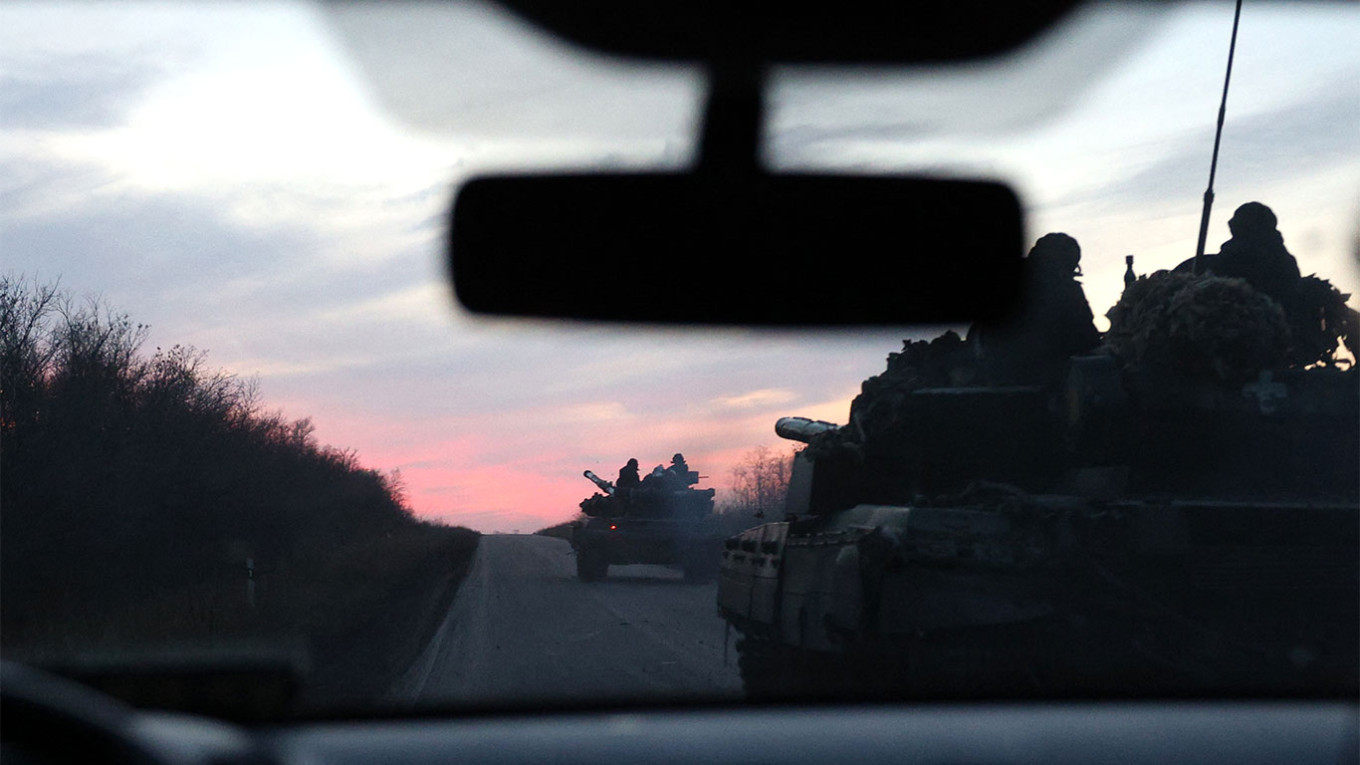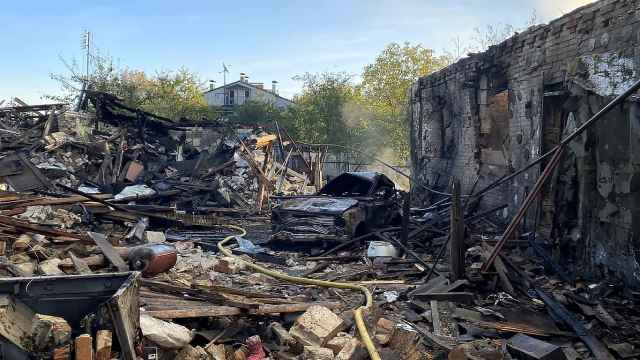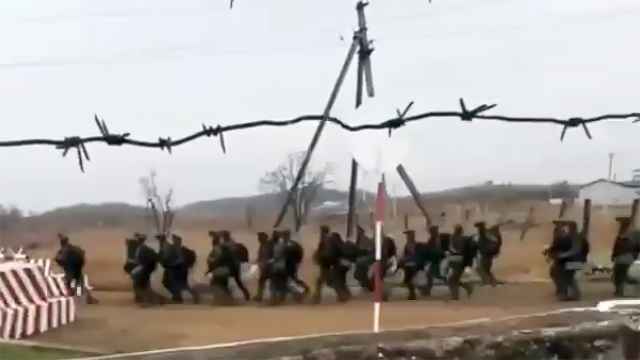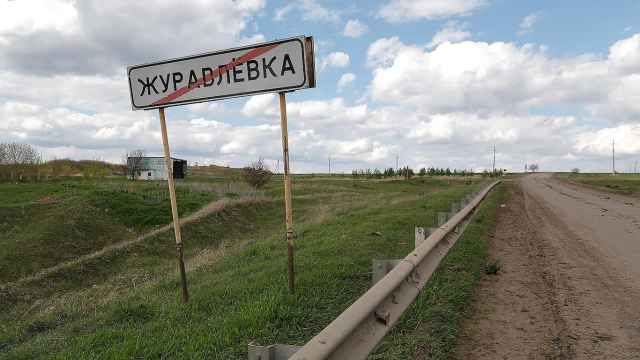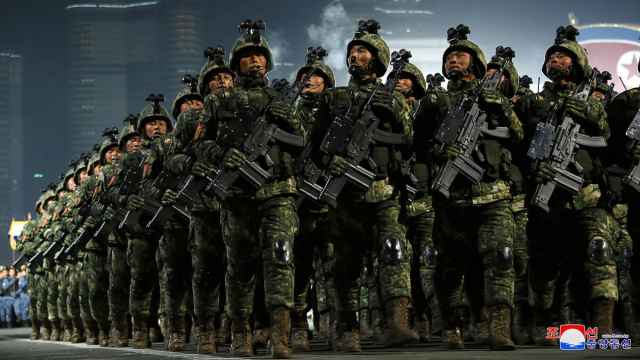Ukraine's withdrawal from the city of Avdiivka hands Vladimir Putin a major symbolic victory before Russia's presidential election in March and exposes Kyiv's critical shortages of weapons and soldiers.
Symbol of Ukrainian resistance
Avdiivka, a small industrial city in the eastern Donbas region, has been a symbol of Ukrainian resistance to Russian aggression since 2014.
It is close to the city of Donetsk, which pro-Russian separatists control as their capital and whose Moscow-backed fighters briefly took power in July 2014 before Ukrainian forces regained control.
The city is now mostly destroyed and abandoned, with the vast majority of its pre-war population of around 34,000 having fled.
Avdiivka "has been a symbol of Ukraine's battlefield resolve and Russia's military failures," said analyst Ivan Klyszcz of the Estonia-based International Center for Defense and Security.
But it is "strategically insignificant," added Gustav Gressel, a senior policy fellow at the European Council on Foreign Relations.
"It would have been a good foot in the door for a Ukrainian offensive" on Donetsk city, but Ukraine cannot conduct such an offensive for at least two years and it made "no sense to sacrifice soldiers now," he said.
For Vladimir Putin, whose re-election as Russian president in March is all but assured with the opposition muzzled or exiled, Avdiivka is a "significant victory," according to the U.S.-based Institute for the Study of War.
Unfavorable odds for Ukraine
A spokesman for one of Ukraine's top military units said the months-long battle for Avdiivka was even tougher than the bloody fighting in Bakhmut, another industrial eastern city that Russian paramilitary group Wagner claimed to have captured in May 2023.
Oleksandr Borodin of Ukraine's third assault brigade pointed to Russia's massive deployment of heavy equipment and air power, with intense bombardment raining down on Ukrainian positions in recent days.
Russia carried out tank attacks with infantry using "a large number" of armored personnel carriers, Soviet-era combat vehicles, planes and drones, whereas Wagner mostly sent men into the Bakhmut front line, he said before Ukraine's withdrawal.
Although Avdiivka's defenses had been strengthened since 2014 and inflicted heavy losses since October, Russian forces managed to "infiltrate into the city itself" in mid-January, said Gressel.
In the past two weeks, Ukrainian communication lines were cut or endangered, while some areas faced attacks from all sides, he added.
The delivery of Western F-16 fighter jets to Ukraine "take much too long" and Kyiv's forces were running short of air-to-air missiles and artillery ammunition, undermining the defense of Avdiivka, Gressel said.
Retreat to hold out
Pulling out of Avdiivka was the right decision to avoid being surrounded and save as many lives as possible, Ukrainian President Volodymyr Zelensky told the Munich Security Conference on Saturday.
"This does not mean that people retreated some kilometers and Russia captured something, it did not capture anything," he added.
The retreat is unsurprising because Russia had nearly surrounded Avdiivka and the destruction of units would have been "catastrophic" for Ukraine, said Mark Cancian, a senior adviser at the Center for Strategic and International Studies.
"The corridor leading out of the city is narrow and under fire. The retreat will not be easy," he warned.
Ukrainian forces have been ordered to set up new defensive lines to the west and southwest of Avdiivka and the battle is far from over.
It remains to be seen whether Ukraine can defend the new line and if Russia has enough reserves to continue the offensive and make another breakthrough, said Philippe Gros of the Foundation for Strategic Research in Paris.
According to a European military source, Ukraine is going on the defensive to hold out in the long term, fend off local Russian attacks and avoid squandering its capacities while waiting for fresh Western aid, especially from the United States.
A Message from The Moscow Times:
Dear readers,
We are facing unprecedented challenges. Russia's Prosecutor General's Office has designated The Moscow Times as an "undesirable" organization, criminalizing our work and putting our staff at risk of prosecution. This follows our earlier unjust labeling as a "foreign agent."
These actions are direct attempts to silence independent journalism in Russia. The authorities claim our work "discredits the decisions of the Russian leadership." We see things differently: we strive to provide accurate, unbiased reporting on Russia.
We, the journalists of The Moscow Times, refuse to be silenced. But to continue our work, we need your help.
Your support, no matter how small, makes a world of difference. If you can, please support us monthly starting from just $2. It's quick to set up, and every contribution makes a significant impact.
By supporting The Moscow Times, you're defending open, independent journalism in the face of repression. Thank you for standing with us.
Remind me later.


